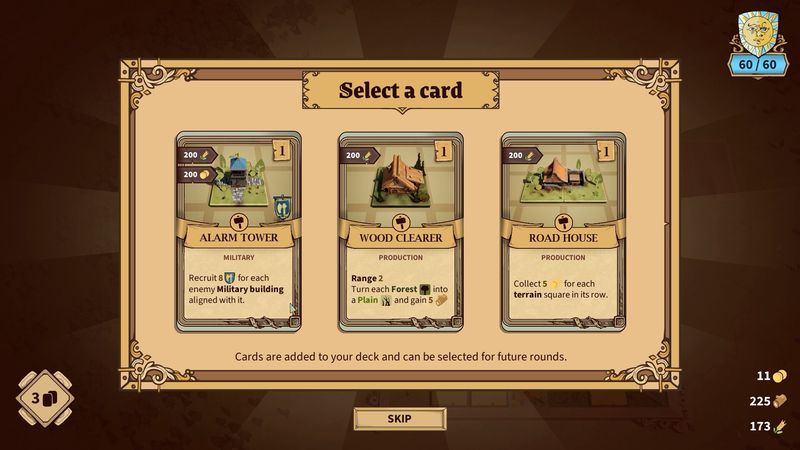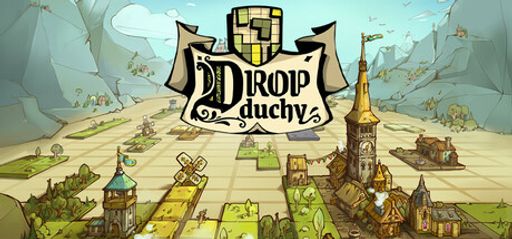I arrived at Drop Duchy with a mix of skepticism and cautious hope. As a lifelong single‑player RPG enthusiast, I have seen my share of hybrid roguelites. Rarely does a title take a familiar mechanic—and twist it into something refreshingly innovative—quite like Sleepy Mill Studio’s latest effort. This rogue-lite puzzles-and-empires hybrid finds creative balance between a Tetris-like block-dropping mechanic and intricate resource management. The result is a surprisingly multidimensional experience that rewards careful thought and occasional bold risk-taking.
Overall Impressions
Drop Duchy commands attention from the start. The game mashes two distinct genres in an efficient and engaging manner. It takes inspiration from puzzle classics and then layers on troop recruitment, resource management, and faction-based playstyles. I noted that the game models various play experiences through its three factions. The Duchy faction offers a straightforward puzzle challenge reminiscent of traditional Tetris. The Republic shifts toward a citybuilder vibe, while the Order demands thoughtful terrain-alignment strategies. This diversification sets Drop Duchy apart in a market filled with rather monotone roguelite formulas.
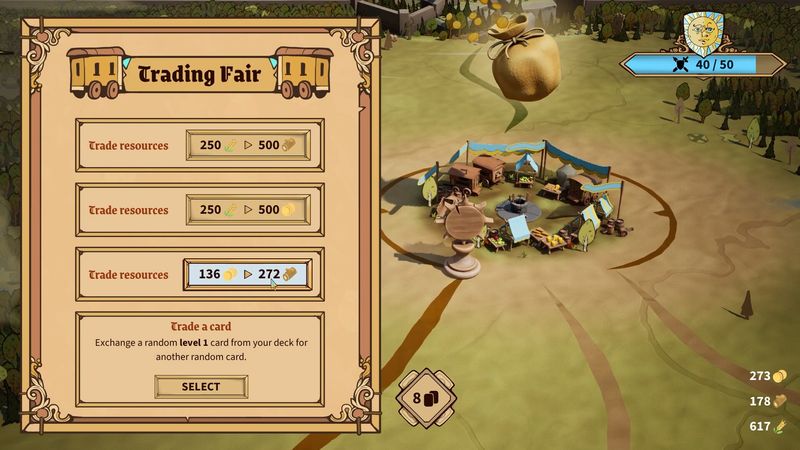
I must admit that the complexity can feel daunting at first. The game forces you to consider many factors simultaneously: terrain type, resource prioritization, and even weapon triangles reminiscent of classic tactical RPGs. Yet, Drop Duchy teaches you gradually. Normal mode generously provides as much time as you need to plan and execute your moves. The design is clever enough to invite speedruns without sacrificing its methodical pace—a duality that gamers will both enjoy and critique.
Gameplay Mechanics
The core gameplay excels, blending simplicity with depth. I have seen countless attempts to build a solid puzzle foundation, and Drop Duchy manages to feel as addictive as it is intricate. Its block-dropping mechanic is robust and reminiscent of Tetris. However, Sleepy Mill Studio infuses layers of strategy that ensure every playthrough differs from the last. Every block you place and every resource you collect affects how battles will play out. Recruiting troops to fight belligerent armies ties this puzzle platform to broader strategy elements. I relished the moments when a perfect block placement yielded unexpected bonuses, or when my strategic foresight turned a chaotic round into a resounding victory.
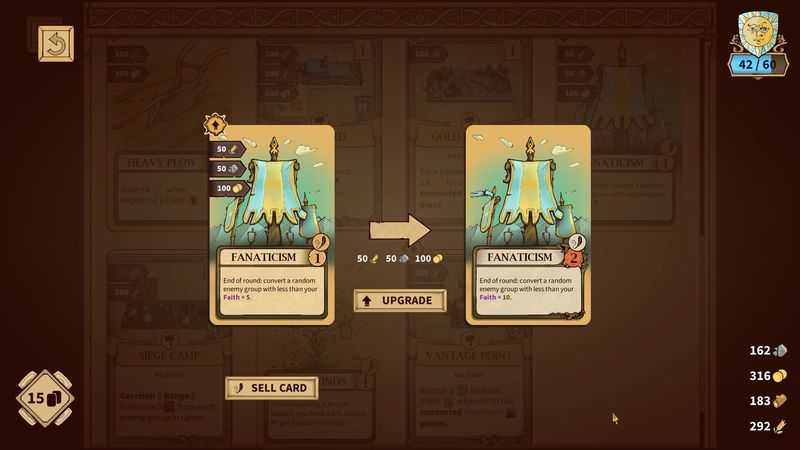
What truly resonates is the depth introduced by faction-specific mechanics. Playing as the Duchy feels like taking command of an ancient empire; as the Republic, I enjoyed the city-building nuances; and as the Order, I had to weigh central building bonuses against regional tactics. This trifecta of playstyles breathes life and variety into the game. Though complexity sometimes leads to occasional decision paralysis, the metaprogression system manages the learning curve. The upgrade deck, while occasionally overwhelming, makes each run feel like a fresh challenge. A recurring suggestion among players is to include a toggle system for upgrades. I agree that a future implementation of banishment might help streamline gameplay without reducing the game’s inherent difficulty.
Story and Characters
The narrative does not dominate the experience, yet it feels authentic and integrated. Drop Duchy never aims to be the next epic saga, and that is refreshing. The game builds its world with economy and empires in mind, where every block and troop is a gesture toward a larger narrative of conquest. I found the lore carefully hidden behind mechanics and faction differences. The brief dialogues, strategic hints, and understated humor imply a deeper world. There is little hand-holding. Instead, the game trusts the player to piece together its story through gameplay dynamics. While some may miss a more cinematic tale, I appreciated the subtlety and the invitation to participate in the unfolding empire narrative.
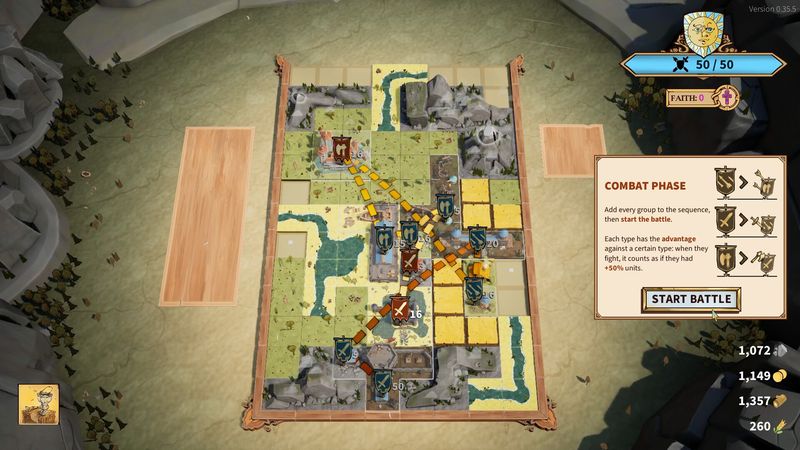
Visuals and Graphics
Graphically, Drop Duchy strikes a pleasing balance. The art style is crisp and clear. Every block and troop is rendered with meticulous attention to detail. The visuals serve the gameplay without overwhelming it. There is a raw charm in the pixelated design that makes each empire feel personal. The interface is intuitive, allowing me to focus more on strategy than on deciphering controls. The color palette shifts according to the chosen faction, which further emphasizes gameplay differences. In scenes of intense gameplay—when the battlefield becomes cluttered with creatively arranged blocks—the clarity of the visuals remains impressive. In short, Sleepy Mill Studio knows how to make an aesthetic statement without succumbing to needless flashiness.
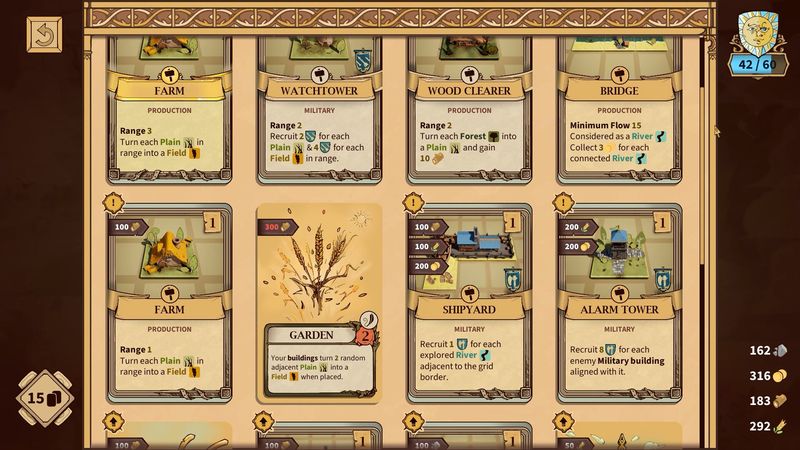
Sound and Music
The sound in Drop Duchy boosts its overall feel. The soundtrack uses gentle tunes that match the growing tension of building an empire. Every block placed, troop clash, and the soft ticking clock in key moments adds to a unified mood. The effects are clear and well-timed. I especially liked when the music changed slightly during tense moments, matching the game’s urgency—even on normal difficulty, where time feels ample. Although there is no detailed voice acting, that choice fits the game’s purpose. It keeps the focus on strategy and puzzles, letting each quiet pause mean something.
Difficulty and Replayability
Drop Duchy is tough but fair, pushing your strategy skills without causing extreme frustration. Early players calling it “fairly difficult” matches my playthrough. Success hinges on planning; the game rewards careful thinking and punishes quick, sloppy moves. Its deep layers mean every run teaches you something new. Each faction offers a unique challenge, so I spent hours testing different approaches. The game strikes a fine balance: it welcomes new players while still challenging experienced roguelite fans.
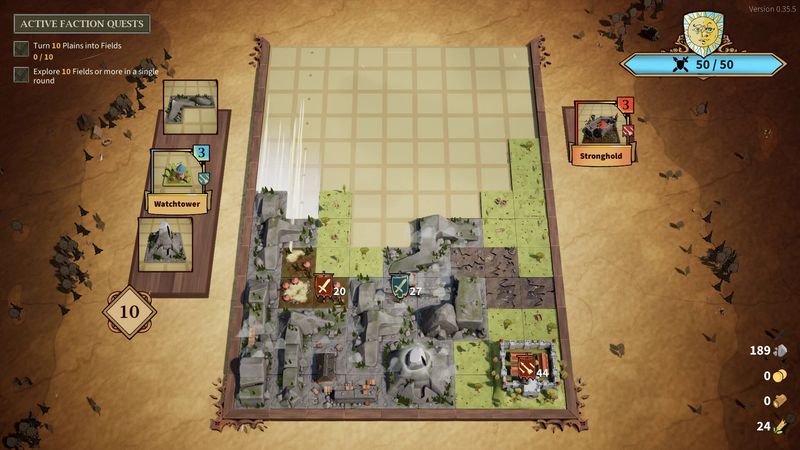
A critical observation from players was the potential dilution of the upgrade deck over time. This nuanced observation has merit. However, I see it more as an invitation for future developers to refine the metaprogression mechanics. The game already provides a robust foundation that can evolve with feedback. Its replayability factor is high, partly because of this willingness to adapt and iterate upon its core systems.
Behind the Scenes
I also appreciate the passion that Sleepy Mill Studio clearly invested in Drop Duchy. The game feels like a heartfelt blend of puzzle mastery and strategic empire-building. This is a game designed by individuals who understand the genre and its audience. Its success among early players, as reflected in the very positive recent reviews, suggests that the developers have a deep understanding of what makes a rogue-lite both challenging and addictive. The supporting publisher, The Arcade Crew, seems to have allowed creative freedom while ensuring the final product polished every detail. This collaboration bodes well for future projects that might share or build upon Drop Duchy’s innovative blueprint.
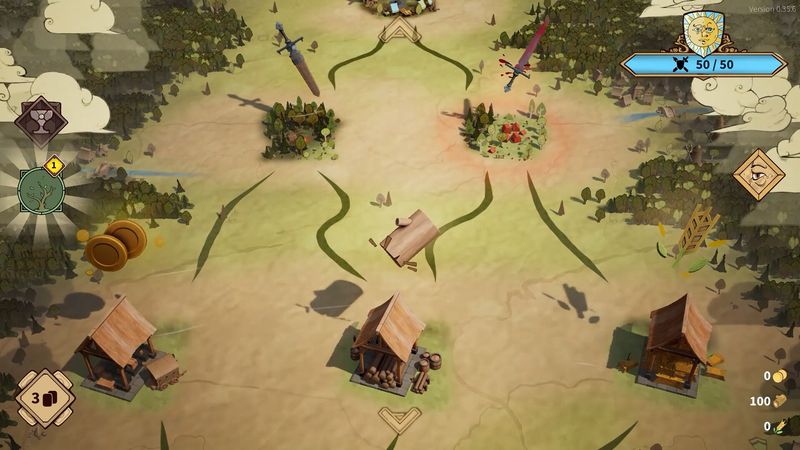
Final Thoughts
Drop Duchy strikes a finely tuned balance between retro puzzle fundamentals and modern strategic complexity. It manages to take a familiar mechanic and infuse it with fresh conceptual layers. The gameplay is rewarding, the visuals charming, and the sound design intentionally crafted. Despite some minor issues with upgrade management, the game proves resilient and inventive. Sleepy Mill Studio appears to be on a promising trajectory, and I look forward to their future endeavors.
In summary, Drop Duchy is a masterful blend of puzzle and roguelite design. It demands strategy, rewards careful thought, and challenges you to reconsider what a single run can offer. As a connoisseur of single-player RPG experiences and a connoisseur of industry tropes, I tip my hat to this title. I give Drop Duchy a solid 4.5 out of 5 stars. It is a clever, challenging, and engaging title that leaves you both satisfied and thinking about the next run long after you’ve put it down.
